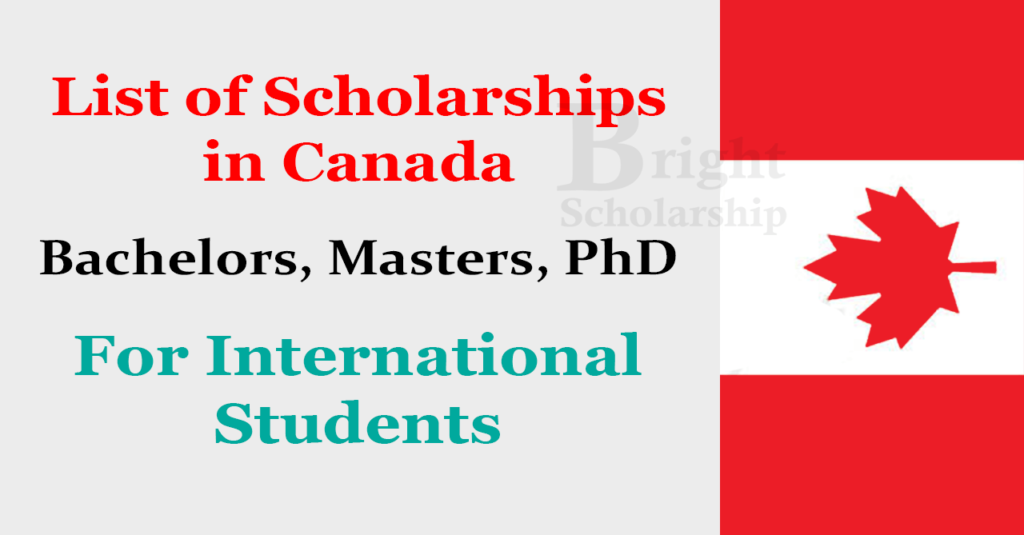Are you dreaming of pursuing a PhD in Canada but unsure how to manage the costs? You’re not alone. Canada is a top choice for students worldwide due to its quality education, diverse culture, and strong research opportunities. However, juggling tuition, living expenses, and academic commitments can feel overwhelming. Enter PhD scholarships—your gateway to an affordable, enriching academic experience in Canada.
This guide will walk you through everything you need to know about PhD scholarships in Canada for 2025. From types of scholarships to eligibility requirements and key deadlines, we’ve got you covered.
Why Choose Canada for Your PhD?
Before we deep-dive into scholarships, let’s quickly address why Canada stands out as a PhD destination.
- World-Class Universities: Canadian universities like the University of Toronto, McGill University, and the University of British Columbia are globally recognized for their research-driven programs.
- Diverse Research Opportunities: Whether you’re interested in engineering, social sciences, or healthcare, Canada offers diverse resources to support your research ambitions.
- Post-Study Work Opportunities: Graduates can leverage Canada’s post-graduation work permit program to gain valuable professional experience.
- Welcoming Environment: Canada is celebrated for its diversity and inclusivity, making it a great choice for international students.
Now that you know why Canada is the place to be, let’s talk about making that dream affordable.
Table of Contents
Types of PhD Scholarships in Canada
Scholarship opportunities in Canada are plentiful, and they generally fall into the following categories.
1. Government-Funded Scholarships
The Canadian government offers numerous funding programs to attract top-tier international students.
- Vanier Canada Graduate Scholarships
- IDRC Research Awards
2. University-Specific Scholarships
Many Canadian universities have dedicated scholarship programs for PhD candidates, such as the University of Toronto’s Doctoral Program Fellowships or McGill University’s International Doctoral Scholarships.
3. External Scholarships
These are scholarships offered by external organizations such as charities, foundations, or professional associations. Examples include the Trudeau Foundation Doctoral Scholarships and the Commonwealth Scholarship Program.
4. Research-Based Funding
If you’re working on a research project, your academic department may provide funding through grants or assistantships. This funding can cover both your tuition and living expenses.

Eligibility Criteria for PhD Scholarships in Canada
While different scholarships have specific requirements, most of them share some common eligibility conditions.
- Academic Excellence: A strong academic record is crucial, often requiring a GPA of 3.5 or higher.
- Research Experience: Demonstrating prior research experience through publications or projects can give you a competitive edge.
- Language Proficiency: Proof of English or French language proficiency, depending on the university, is a common requirement.
- Statement of Purpose: A powerful, well-crafted personal statement highlighting your goals and motivations can set you apart.
- Letters of Recommendation: Strong references from academics or professionals who know your capabilities boost your chances.
Take note of any additional specific criteria of the scholarship you are applying for to ensure a tailored and complete application.
Top PhD Scholarships in Canada for 2025
Here’s a detailed table to compare some of the best PhD scholarships in Canada for 2025.
| Scholarship Name | Funding Amount | Eligibility | Deadline |
|---|---|---|---|
| Vanier Canada Graduate Scholarships | $50,000/year (for 3 years) | Open to international students with leadership potential | November 1, 2024 |
| Trudeau Foundation Scholarship | Up to $60,000/year | For social sciences or humanities students | January 2, 2025 |
| UBC Four-Year Doctoral Fellowship | Full tuition + $18,000/year stipend | Open to domestic and international students | Varies (check with UBC) |
| Ontario Trillium Scholarships | $40,000/year (renewable) | International PhD students in Ontario | February 15, 2025 |
| IDRC Research Awards | Varies (research supported) | Developing-country students conducting research in Canada | September 2024 (TBD) |
These scholarships not only significantly reduce financial burdens but also endorse your credibility as a researcher to future employers or academic collaborators.
How to Apply for Canadian PhD Scholarships
To boost your chances of securing a scholarship, follow these steps.
1. Research Thoroughly
Start by identifying multiple scholarships that align with your academic interests and qualifications. Visit university websites and official government portals for detailed information.
2. Prepare Early
Give yourself ample time to collect essential documents like transcripts, test scores, and reference letters.
3. Tailor Your Applications
Customize your statement of purpose to reflect the specific objectives of the scholarship program.
4. Proofread and Verify
Ensure your application is error-free and meets the scholarship’s guidelines. Double-check submission deadlines as late applications are usually not considered.
5. Follow Up
After applying, keep an eye on emails for updates. Some scholarships may require further interviews or additional documentation.
FAQs About PhD Scholarships in Canada
1. Are there fully-funded PhD scholarships in Canada?
Yes, scholarships like the Vanier Canada Graduate Scholarships and the Ontario Trillium Scholarships offer substantial funding to cover tuition and living expenses.
2. Can international students apply for Canadian PhD scholarships?
Yes! Many scholarships explicitly encourage international student applications. Ensure you meet the eligibility requirements.
3. How competitive are PhD scholarships in Canada?
While the application process is competitive, your chances increase with a combination of excellent academic achievements, research experience, and a well-crafted application.
4. Do I need work experience to apply for a PhD scholarship?
Not usually. However, work or research experience can add considerable value to your application.
5. What documents are commonly required?
Documents typically include transcripts, proof of language proficiency, a research proposal, a statement of purpose, and letters of recommendation.
Shape Your Academic Future
Pursuing a PhD in Canada opens up unparalleled academic and professional opportunities. Scholarships can make your dreams more accessible, so don’t hesitate to take the leap.
Start your research, prepare your applications, and get ready to contribute to groundbreaking research in one of the most welcoming countries for academic talent.
Need more personalized guidance? Explore university websites or consult academic advisors to tailor your path in securing a PhD scholarship in Canada for 2025.



2 Comments
Pingback: How to Get a Scholarship in Canada
Pingback: Top Public Universities in Canada